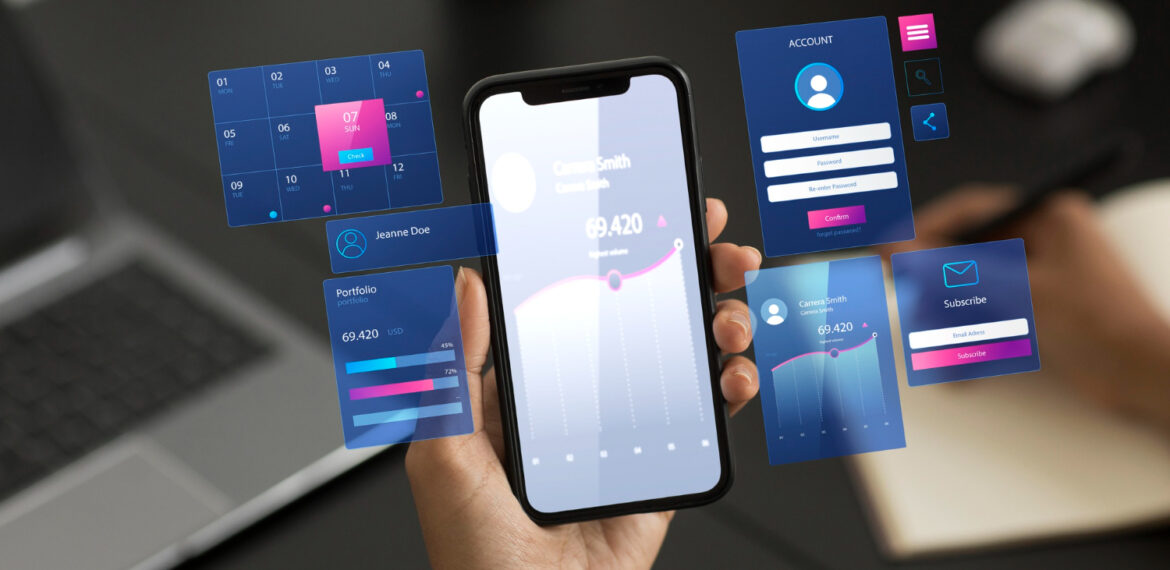
Why Your UK Business Needs a Mobile App: Real-World Examples
Why Your UK Business Needs a Mobile App: Real-World Examples
In today’s fast-paced digital landscape, a strong online presence is no longer just about a website. For businesses in the UK, a mobile app has become an indispensable tool for connecting with customers, streamlining operations, and driving growth. But why exactly is a mobile app so crucial, and how are UK businesses actually benefiting? Let’s dive into some real-world examples.
The Ever-Growing Mobile Market
Consider this: the average UK adult spends over three hours a day on their smartphone. From checking social media and ordering groceries to managing finances and booking appointments, mobile devices are at the heart of our daily lives. If your business isn’t present on this ubiquitous platform, you’re missing a significant opportunity to engage with your target audience.
Beyond the Website: Unique App Advantages
While a website is essential, a mobile app offers distinct advantages:
- Direct Customer Engagement: Apps provide a direct channel to your customers through push notifications, special offers, and personalized content.
- Enhanced User Experience: Apps are designed for mobile, offering a smoother, faster, and more intuitive experience than a mobile-responsive website.
- Offline Access: Many app functionalities can be accessed offline, providing convenience even without an internet connection.
- Brand Loyalty & Recognition: A dedicated app reinforces your brand, fosters loyalty, and keeps your business top-of-mind.
- Data & Analytics: Apps provide valuable insights into user behaviour, allowing you to refine your services and marketing strategies.
Real-World UK Examples: Businesses Thriving with Mobile Apps
Let’s look at how various sectors in the UK are leveraging mobile applications:
- Retail & E-commerce: The Convenience Factor
Major UK retailers like Tesco and Sainsbury’s have highly successful mobile apps. These apps allow customers to:
- Create shopping lists
- Browse products and check stock
- Order groceries for delivery or click-and-collect
- Access loyalty programs (e.g., Clubcard, Nectar)
- Receive personalized offers and discounts
The convenience offered by these apps has not only boosted sales but also significantly enhanced customer loyalty, proving invaluable, particularly during recent times.
- Food & Beverage: Seamless Ordering & Delivery
The UK’s food delivery market has exploded, largely driven by mobile apps. Platforms like Deliveroo and Just Eat revolutionized how we order food, but countless independent restaurants and larger chains also have their own apps.
- Pret A Manger, for example, has an app that facilitates easy ordering, loyalty rewards, and even coffee subscriptions, enhancing the customer experience and speeding up service.
- Smaller local takeaways are also investing in their own apps to reduce reliance on third-party platforms, build direct customer relationships, and offer exclusive deals.
- Transportation: Streamlining Travel
From getting around the city to planning intercity journeys, mobile apps have transformed UK transportation.
- Transport for London (TfL) Oyster and Contactless app: This app helps commuters manage their Oyster cards, view journey history, and top up credit, making urban travel more efficient.
- Trainline: While not UK-specific, it’s widely used in the UK for booking train tickets across various operators, checking live departure boards, and getting real-time updates.
- Uber and Bolt: These ride-sharing apps have become integral to urban mobility, offering convenient, on-demand transport with transparent pricing.
- Financial Services: Banking at Your Fingertips
UK banks have been at the forefront of mobile banking innovation. Almost every major bank, including Barclays, Lloyds, NatWest, and challenger banks like Monzo and Starling, offer feature-rich mobile apps. These apps allow users to:
- Check balances and transaction history
- Make payments and transfer money
- Set up direct debits and standing orders
- Manage savings and investments
- Access budgeting tools and financial insights
These apps have made banking more accessible, empowering customers to manage their finances anytime, anywhere.
- Health & Wellness: Personalised Care
The health sector in the UK is also embracing mobile technology.
- NHS App: This official app allows users to book GP appointments, order repeat prescriptions, view their medical record, and access other NHS services digitally.
- Fitness apps: UK-based gyms and personal trainers often develop apps for members to book classes, track progress, access workout plans, and receive nutritional advice, fostering a stronger community and engagement.
Is a Mobile App Right for Your UK Business?
If you’re wondering whether your UK business needs a mobile app, consider these questions:
- Do your customers frequently interact with your business on their phones?
- Could an app simplify a key process for your customers or employees?
- Do you want to build stronger customer loyalty and offer personalized experiences?
- Is your competition already leveraging mobile apps?
If you answered yes to any of these, it’s highly likely that a mobile app could provide a significant competitive advantage and drive substantial value for your business. Investing in mobile app development is no longer a luxury; it’s a strategic imperative for businesses aiming to thrive in the modern UK market.


